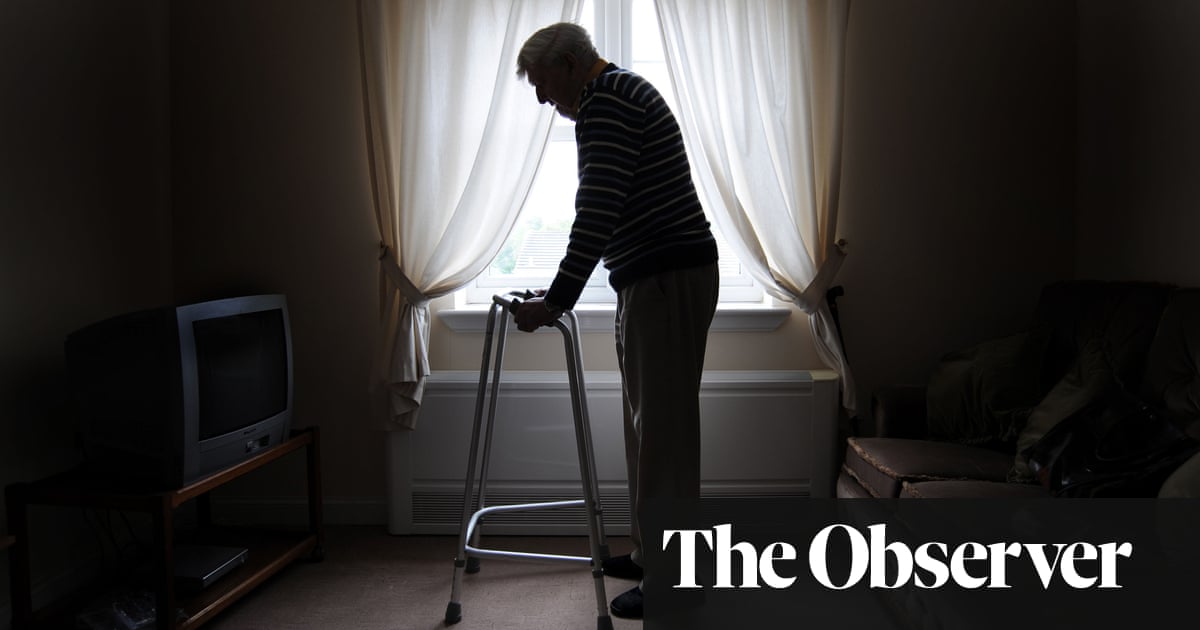
Care home residents urgently need more security to prevent “revenge evictions”, campaigners say, after research revealed that at least one in 70 care residents in England received a notice to quit last year.
Providers currently need to give just 28 days’ notice for a resident to leave their home. The research, by King’s College London backed by the Relatives and Residents Association (R&RA), found many evictions came after complaints.
In one case, a 96-year-old woman was issued a notice to leave her home after her daughter had requested access during the Covid restrictions, fearing her mother was nearing the end of her life. She died a week before the notice was due to take effect.
Using Care Quality Commission (CQC) data, the researchers found at least 5,871 care home residents were served a notice to quit between September 2021 and October 2022, the equivalent of an annual rate of 1.4% of England’s 360,000 care home residents.
In comparison, an analysis by Crisis estimates that 1% of households in the private rental sector in England received an eviction notice over a similar period.
Although the government pledged to introduce a renters’ reform bill to end no-fault evictions in this parliament, it has not taken action to protect care home residents. Lord Hunt of Kings Heath introduced a private member’s bill last year to give more legal rights to care home residents, including a measure preventing providers from issuing a notice to quit within three months of a complaint. Ministers have not adopted the bill and it is unlikely to become law.
Dr Caroline Green, who led the study, said the figures for care home evictions were an underestimate, since the CQC stopped recording notices to quit after a provider issued more than four. Not all notices were retaliation – many came because care homes felt unable to care properly for a resident when their condition declined, or relationships had broken down between staff and families.
Helen Wildbore, director of the R&RA, said the short notice period allowed unscrupulous care providers to use the threat of eviction to stifle complaints. “Every day our helpline hears from people afraid to speak out about poor care due to fear of reprisals, including eviction,” she said. “The power imbalance in care is so vast and there is nowhere for people to turn when being threatened with an eviction or given notice to leave.
“There must be a central complaints procedure to protect people from reprisals and, as the regulator, the CQC must monitor and act upon inappropriate evictions. Urgent change is needed to ensure families are not facing these battles alone.”
Green said most care homes acted with integrity and some people were happier after moving. There were legitimate reasons for eviction notices: in some cases staff faced racist abuse, or a resident needed specialist care. “Some care homes say ‘we’re going to give you as long as you need to find the right place, and we’re going to help’ – and that’s what should happen,” Green said.
“But often people are left completely alone to do that.” She said evictions left “a lasting impact on people’s mental health” with relatives suffering anxiety and post-traumatic stress because they were powerless to act.
In some cases, vulnerable older people have had no option but to live with their adult children without any specialist help. Some families talked of being blacklisted. “People have told us that none of the local care homes wanted to take them in, and their hypothesis was that the care home manager had talked to the others and said ‘don’t give them a place’.”
Green said some providers did not even give 28 days’ notice. “If someone needs to leave the care home to go to hospital, the care home will say ‘we’re not taking you back.’”
The CQC has no powers to intervene in evictions, but Green said the regulator should be given responsibility to run a mediation service to help relatives and providers communicate. “Most families are desperate to stay within the care home,” she said.
Amanda Partington-Todd, deputy director of adult social care at the CQC, said: “Care homes are people’s homes and no one should live in fear of being penalised for raising concerns. While we are aware that most people are served notice by a provider due to a change in need, in discussion with that person and their family, sadly this is not always the case. It is not acceptable for people to be treated unfairly if they raise concerns and we are clear that appropriate action will be taken if we find providers failing in their responsibilities.”
She said the CQC did review complaints about providers and asked that anyone with concerns about care should contact it.
Read More: World News | Entertainment News | Celeb News
Guardian








